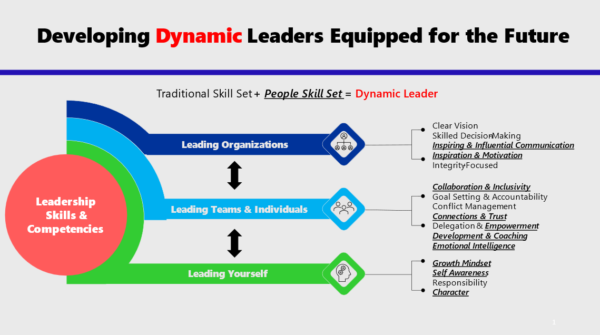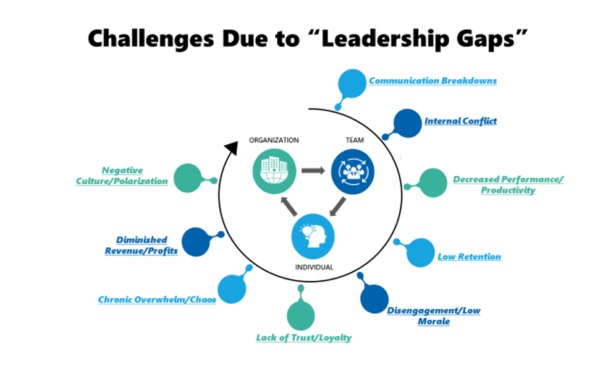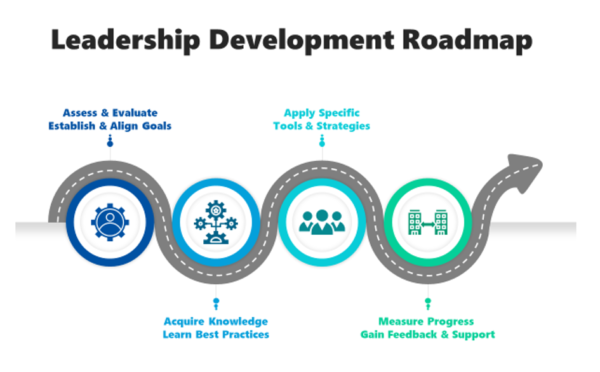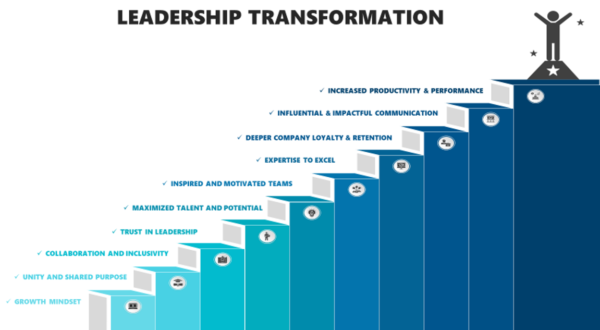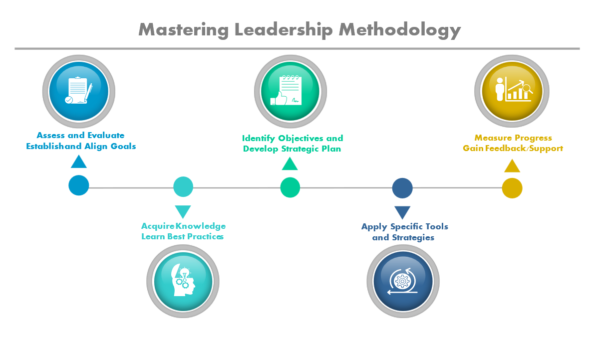Mastering Leadership

The Appleton Greene Corporate Training Program (CTP) for Mastering Leadership is provided by Ms. Tencate Certified Learning Provider (CLP). Program Specifications: Monthly cost USD$2,500.00; Monthly Workshops 6 hours; Monthly Support 4 hours; Program Duration 12 months; Program orders subject to ongoing availability.
Personal Profile
With a rich tapestry of leadership spanning over 20 years across government, for-profit, and non-profit sectors, Ms. Tencate stands as a uniquely qualified expert in leadership development. Her illustrious career includes key roles in the U.S. Senate, a successful 16-year tenure as the CEO of a leading healthcare consulting firm, and active participation in executive teams within various organizations.
In the realm of leadership development, Ms. Tencate has carved a distinct niche. For more than two decades, she has provided expert coaching and consultation to CEOs and executives in global healthcare entities, including hospital and healthcare systems, pharmaceuticals, biotechnology and life sciences, medical device, physician groups, and health plans. In addition, she has worked closely with specialty medical societies and healthcare trade associations nationwide.
What sets Ms. Tencate apart is not only her extensive and varied leadership background but also her decades-long experience in coaching and consulting. This unique combination brings a fresh perspective and a nuanced approach to leadership. Armed with a master’s in public health and 25 years of experience in the healthcare industry, Ms. Tencate effortlessly combines her leadership acumen with a profound understanding of the challenges and opportunities faced by healthcare leaders. Her guidance and insights prove invaluable in navigating the complexities of leadership within the dynamic healthcare landscape.
To request further information about Ms. Tencate through Appleton Greene, please Click Here.
(CLP) Programs
Appleton Greene corporate training programs are all process-driven. They are used as vehicles to implement tangible business processes within clients’ organizations, together with training, support and facilitation during the use of these processes. Corporate training programs are therefore implemented over a sustainable period of time, that is to say, between 1 year (incorporating 12 monthly workshops), and 4 years (incorporating 48 monthly workshops). Your program information guide will specify how long each program takes to complete. Each monthly workshop takes 6 hours to implement and can be undertaken either on the client’s premises, an Appleton Greene serviced office, or online via the internet. This enables clients to implement each part of their business process, before moving onto the next stage of the program and enables employees to plan their study time around their current work commitments. The result is far greater program benefit, over a more sustainable period of time and a significantly improved return on investment.
Appleton Greene uses standard and bespoke corporate training programs as vessels to transfer business process improvement knowledge into the heart of our clients’ organizations. Each individual program focuses upon the implementation of a specific business process, which enables clients to easily quantify their return on investment. There are hundreds of established Appleton Greene corporate training products now available to clients within customer services, e-business, finance, globalization, human resources, information technology, legal, management, marketing and production. It does not matter whether a client’s employees are located within one office, or an unlimited number of international offices, we can still bring them together to learn and implement specific business processes collectively. Our approach to global localization enables us to provide clients with a truly international service with that all important personal touch. Appleton Greene corporate training programs can be provided virtually or locally and they are all unique in that they individually focus upon a specific business function. All (CLP) programs are implemented over a sustainable period of time, usually between 1-4 years, incorporating 12-48 monthly workshops and professional support is consistently provided during this time by qualified learning providers and where appropriate, by Accredited Consultants.
Executive summary
Mastering Leadership
Navigating the many challenges of the pandemic has taken a toll on leaders, as well as those they lead. Companies across the globe realize in order to survive in today’s volatile, uncertain, and complex environment, they need leadership skills that go beyond those that helped them succeed in the past. As we head into the future, it has become evident that a new type of leader is needed.
While traditional leadership skills like strategic thinking and effective decision-making are still very important, there is now a growing demand for more dynamic leaders who prioritize the human side of leadership as well. These leaders go beyond just understanding the business and learn how to understand the people. They know how to foster thriving cultures that cultivate creativity, nurture individuals, and develop collaborative and inclusive environments within their organizations.
Traditional leadership skills and competencies are in desperate need of some reengineering, along with the need to also further develop a new set of skills that create dynamic leaders adept in people leadership and equipped to build the teams, cultures, and environments that will carry them successfully into the future.
The Growing Leadership Gap
The current state of leadership in the United States is not only a cause for concern but also an issue that requires serious attention. According to a recent article published by Forbes, there has been a concerning decline in the quality of leaders, plummeting ratings back to levels last seen during the financial crisis. This disconcerting phenomenon, commonly known as the “leadership gap,” is compounded by Gallup’s recent poll revealing that only 21% of U.S. employees have trust in the leadership of their organization.
Retention and Turnover Crisis
The lack of trust in leadership cannot be underestimated. Retaining employees has become one of the biggest challenges for businesses and organizations today, as the retention and turnover crisis continues.
According to iHire’s 2022 Talent Retention Report, being unhappy with a manager or supervisor was at the top of the list (43.7%) as to why people left jobs in the past 12 months. As leadership guru John Maxwell says, “People quit people, not companies”.
In Gallup’s 2023 State of the Global Workplace Report, the majority of the world’s employees (6 out of 10) are “quiet quitting”. This means the employee psychologically disengages from their work. They may be present physically or logged into their computer, but they have no idea what to do or why it matters. They also lack supportive relationships with their coworkers, boss, or organization.”
Leadership Development Is No Longer a Luxury: A Case Study
The need for leadership development has never been more urgent. Investing in a leadership development program is no longer just a luxury but a critical necessity for the success of any organization. In our fast-paced and constantly evolving business landscape, there is a growing leadership gap that needs to be bridged. Organizations with dynamic leaders benefit in significant ways. According to a recent Harvard Business Review Analytic Services Report, 665 organizational leaders from across industries around the world, reported on whether their leadership development program was delivering desired results. Respondents reported increased revenue (35%), better collaboration and teamwork (69%), increased employee engagement (60%), better performance from teams, and greater emotional intelligence (59%).
Companies across many different industries have successfully utilized leadership training and development within their organization. From Adobe, to Cigna, to Allstate, these are just a few examples of businesses that have included leadership training as part of their business model – incorporating a range of individuals, from emerging leaders to senior executives.
According to a recent report by Comparably, the Adobe CEO and leadership team scored an “A+”, placing it in the top 5% of companies sized 10,000+. The CEO received a leadership score of 94/100 and the leadership team 92/100, respectively. “Smart, compassionate and transparent leadership style”, is how one employee described the company in the Comparably study. Ranked in the top one-third of companies to work for by Fortune, another employee noted, “I appreciate knowing that I will be respected and treated well regardless of a given hierarchy or reporting chain,” adding that there is a high level of investment in staff. “They ‘walk the talk,’ so to speak, which I appreciate.”
Adobe made the leap into leadership development 10 years ago and continues to make ongoing investments in developing its leaders to live out the mission and values of the organization. The culture of the organization is a reflection of this successful investment as stated by the head of one of Adobe’s technical divisions in a recent LinkedIn article, “Our teams all have a mutual respect for each other’s priorities, and as individuals, we all respect each other’s opinions and viewpoints. We deliver feedback objectively and constructively and look for ways to align on common goals so we can work together towards success.”
The Leadership Gap
In working with dozens of organizations, a similar pattern emerges around the primary challenges they face as a result of limited, underdeveloped, or misguided leadership skill sets adversely impacting teams, performance, retention, and ultimately revenue. Most organizations wrestle with at least two or more serious issues across organizational, team, and individual levels.
Organizations that recognize the gravity of the situation are ready to take action to rectify it. They recognize that it is no longer sufficient to simply acknowledge the existence of the leadership gap; instead, they must actively and genuinely work toward developing influential, impactful, and skilled leaders. By being proactive and investing in existing and future leaders, organizations are bridging the leadership gap, rebuilding a foundation of trust and confidence, and setting themselves apart from other organizations.
Investing in Your Leaders
This comprehensive 12-month program is designed for aspiring, mid-level, and senior leaders. It is a crucial step toward bridging your leadership gap and equipping leaders with the essential knowledge, skills, tools, and strategies needed to positively impact individuals and lead organizations to unparalleled success. From enhancing communication and decision-making abilities to fostering trust and loyalty, over the course of this program, each month we tackle the most pressing leadership challenges.
Participants will have the opportunity to leave with an enhanced awareness of their individual strengths and weaknesses, coupled with valuable insights into their unique communication style. Equipped with a precisely defined toolkit, they will be empowered to implement targeted strategies and methods to strengthen their existing skills while also fostering the growth of new ones. Furthermore, leaders will walk away with a solid action plan tailored to their current needs and role.
The monthly workshops offer a transformative experience for participants. Each workshop provides a structured roadmap for participants to not only learn, but also to apply their newfound knowledge, allowing them to measure their progress and receive critical feedback. This holistic approach ensures that participants gain comprehensive insight and valuable hands-on experience, empowering them to truly thrive in their leadership roles.
Experience the Profound Benefits of Leadership Transformation
Embarking on this 12-month leadership program yields a plethora of benefits that will have a profound impact. Throughout this comprehensive program, participants have the opportunity to develop and hone their communication skills, enabling them to become influential and impactful communicators. By enhancing their ability to articulate ideas, convey messages effectively, and engage with others, participants can transform how they interact and collaborate with their teams and stakeholders.
Moreover, the program focuses on increasing productivity and performance, providing participants with the tools and strategies needed to optimize their work environment, prioritize and delegate effectively, and achieve their goals more efficiently.
A vital aspect of the program is the emphasis on creating a culture of trust and collaboration. Participants will learn essential techniques for fostering open and transparent communication, breaking down silos, and nurturing an environment where ideas can flow freely. By cultivating a strong sense of trust, inclusivity, and collaboration within their organizations, participants can pave the way for increased innovation, creativity, and team synergy.
Conflict resolution is another critical skill that participants will master throughout the program. By learning effective techniques for managing and resolving conflicts constructively, individuals will be empowered to transform potentially contentious situations into opportunities for growth and understanding. This skill not only enhances the overall dynamics within teams but also promotes a harmonious and productive work environment.
Additionally, the program aims to reinvigorate a strong sense of unity and shared purpose among participants. By aligning personal, professional, and organizational goals, individuals can foster a deeper sense of connection, leading to increased engagement and commitment.
Another advantage of the program is the opportunity to uncover hidden talents and untapped potential. Participants will gain insight into their unique strengths and learn to tap into those of their team, enabling them to leverage these talents and maximize themselves and their teams.
Moreover, our leadership program serves as a catalyst to awaken inspiration and motivation. Through engaging workshops and exposure to industry best practices, individuals will reignite their passion and drive, enabling them to tackle their responsibilities with renewed enthusiasm and lead by example with confidence.
Finally, one of the remarkable outcomes of the program is its ability to inspire deeper company loyalty. By investing in the growth and development of individuals, organizations create a supportive environment that acknowledges and values employee potential. This, in turn, fosters a strong sense of loyalty, commitment, and dedication among team members, leading to higher retention rates and a more cohesive organizational culture.
Curriculum
Mastering Leadership – Part 1 – Year 1
- Part 1 Month 1 Key Principles
- Part 1 Month 2 Cultivating Character
- Part 1 Month 3 Success Mindset
- Part 1 Month 4 Defining Direction
- Part 1 Month 5 Emotional Intelligence
- Part 1 Month 6 Effective Communication
- Part 1 Month 7 Influence and Impact
- Part 1 Month 8 Embracing Collaboration
- Part 1 Month 9 Maximizing Performance
- Part 1 Month 10 Positive Change
- Part 1 Month 11 Conflict Resolution
- Part 1 Month 12 Coaching and Mentoring
Program Objectives
The following list represents the Key Program Objectives (KPO) for the Appleton Greene Mastering Leadership corporate training program.
Mastering Leadership – Part 1- Year 1
- Part 1 Month 1 Key Principles – The core tenets of leadership have proven to be timeless, enduring across centuries, and remaining relevant in our rapidly changing world. Understanding these guiding principles is essential in today’s dynamic environment, where they continue to serve as the bedrock of powerful leadership. In this engaging workshop participants will be introduced to the core principles of leadership. You will dive deep into learning about these principles to gain a firm foundation. Additionally, you will learn actionable strategies to seamlessly infuse these principles into your unique leadership platform, building and strengthening your leadership infrastructure and creating a solid framework from which to build.
- Part 1 Month 2 Cultivating Character – True influential leadership is ultimately rooted in a solid character foundation. Followers tend to emulate the actions of their leaders rather than just heeding their words. This workshop starts with understanding the key principles of ethical leadership that form the bedrock of true influence. We start by delving into the vital role ethics play in leadership and provide a clear understanding of essential character traits. Participants learn the tools to create a personalized character value statement and develop a strong ethical framework to guide decision-making. You will gain the foundational skills needed to become a leader who leads by the highest example of integrity with a set of ethical standards that inspire others to follow. By the end of this workshop, each participant will walk away with a profound understanding of the essential character traits that set exceptional leaders apart and how to apply them.
- Part 1 Month 3 Success Mindset – Cultivating a “success mindset” is crucial for effective leadership, providing the foundation for resilience, innovation, and lasting growth. Leaders with this mindset see challenges as opportunities, taking a proactive and solution-oriented approach. They create a culture of continuous improvement, embracing feedback, learning from failures, and adapting to change. This not only benefits their own development but also inspires team success. This workshop equips leaders with practical tools to foster resilience and growth. Participants learn to turn setbacks into progress, cultivate positivity, and inspire success within their teams. The workshop goes beyond theory, incorporating strategies and practical exercises that offer actionable techniques for daily use. Participants will walk away from this workshop equipped with a tangible and actionable “success mindset.” They will gain the tools and insights necessary to approach challenges as opportunities for growth, fostering resilience, innovation, and sustained success in their leadership roles.
- Part 1 Month 4 Defining Direction – Leadership entails possessing a robust vision and an effective plan to bring that vision to fruition. It all begins with comprehending the organization’s mission and aligning it with the envisioned outcome. Together, the mission and vision form the grand picture that addresses the “why” and the “what”. Equally significant is the “how”. This refers to the strategy, blueprint, or plan to execute the envisioned outcome. The primary objective of this workshop is to define and align your mission and vision, to create a cohesive and comprehensive big picture. Additionally, each participant will develop a detailed plan to implement this vision, encompassing well-defined and measurable goals, priorities, specific strategies and actions, as well as clear timelines. Participants will walk away with a clear plan of action that will serve as a guiding force for achieving outlined goals, while upholding mission alignment and ensuring accountability.
- Part 1 Month 5 Emotional Intelligence – Exceptional leadership goes beyond positional authority; it hinges on a paramount attribute—emotional intelligence (EQ). This defining quality sets remarkable leaders apart, allowing them to adeptly navigate their own emotions and understand the sentiments of others. The profound benefits of emotional intelligence extend to fostering collaborative teamwork, skillfully navigating conflicts, and inspiring teams toward shared goals. This workshop is designed to furnish participants with a robust toolkit of EQ strategies, equipping leaders to elevate their overall leadership. In this structured and immersive environment, participants hone their ability to understand and manage emotions, gaining a heightened capacity to navigate complex interpersonal dynamics. Participants will walk away from this workshop armed with a comprehensive understanding and practical toolkit of emotional intelligence (EQ) strategies and tools to seamlessly integrate emotional intelligence into their leadership roles, significantly enhancing their professional effectiveness and contributing to the creation of a thriving and harmonious workplace culture.
- Part 1 Month 6 Effective Communication – Understanding what you want to convey, identifying the most effective means of delivering the message, and assessing whether it has been communicated effectively for others to grasp, are pivotal components of a leadership position. This workshop provides participants with comprehensive instruction in specific communication, listening, and speaking strategies, that are highly impactful, and designed to empower you to excel in real-world scenarios. Participants will gain knowledge and strategies to become both an effective communicator and a skilled connector.
- Part 1 Month 7 Influence and Impact – In our fast-paced and competitive world, simply possessing knowledge and skills isn’t enough to make a lasting difference. To truly succeed as a leader, you must cultivate meaningful connections, nurture relationships, and earn trust. These three elements form the foundation of successful influence. Imagine the power of having a strong network of supporters who believe in you and your ideas. This workshop will show you how to harness that power and make a real impact within your organization. Participants will learn the different levels of influence and impact and the core principles that define them. We then identify your stage of influence, how to apply specific strategies and actions to connections, develop stronger bonds with those you lead, and build the necessary trust to optimize impact. You will learn where you stand on the influence spectrum, and become equipped with the tools to apply specific strategies and take targeted actions. We’ll also guide you in developing stronger connections with those you lead and building the essential trust necessary to maximize your influence. By the end of this workshop, you’ll have a clear understanding of your own influence style, the potential to grow your influence and impact, and the precise strategies to implement.
- Part 1 Month 8 Embracing Collaboration – Collaboration is the key to achieving organizational goals and is essential for any organization to incorporate diverse perspectives and expertise into the process. How can you ensure that collaboration is not just a buzzword, but an effective and impactful process? Successful collaboration hinges on leadership that provides a clear focus and strategic execution. Without this, collaboration can become disjointed, ineffective, and overused. Communication and trust are vital. Leaders must actively seek feedback and foster an environment where team members feel comfortable sharing their perspectives. This workshop will equip participants with the tools they need to create effective collaborations – knowing who, when, and how – in order to maximize a successful outcome. You will learn how to lead and strategically execute collaborations through a clearly defined framework, identify and overcome barriers to collaboration, foster a collaborative culture, and inspire and motivate teams. Each participant will walk away with a clear understanding of how to build trust and respect, cultivate an atmosphere conducive to growth and progression, and achieve greater innovation, efficiency, and productivity.
- Part 1 Month 9 Maximizing Performance – Effective leadership goes beyond giving direction. It is about understanding and tapping into the unique strengths of each team member and delegating tasks appropriately to achieve organizational success. By doing so, leaders not only motivate and empower their team but also create opportunities for growth and development. This workshop will teach participants proven techniques and strategies for delegation and leadership management. You will learn how to harness the unique strengths and abilities of your team members and gain the skills to truly empower and motivate your team, as well as create a positive working environment that fuels growth and development. Participants will begin to master tools to support and reward team members and deepen loyalty and engagement. You will come away with the tools to transform your workplace culture into a thriving hub of success for everyone in the organization.
- Part 1 Month 10 Positive Change – Being able to create positive and lasting change in an organization is undeniably the true test of a great leader. The ability to lead individuals and teams in the right direction may seem like a walk in the park, but it takes exceptional skills to navigate the challenging task of turning things around when they are headed in the wrong direction. In this workshop, participants will develop a comprehensive roadmap comprised of specific steps required for successful change implementation. We delve into the crucial aspects of identifying impactful change, crafting a winning game plan, and effectively communicating and implementing the plan, while gaining buy-in and trust from all stakeholders involved. You will walk away equipped with the knowledge and skills to lead transformative change in your organization.
- Part 1 Month 11 Conflict Resolution – Problems are an inevitable aspect of any organization. For leaders, they are a daily occurrence and often the most challenging to address. When a problem reaches the leadership level, it is likely that other attempts at resolution have failed. As a result, being a pragmatic and effective problem-solver becomes essential for leaders who aim to maintain their credibility and effectiveness. To navigate the complexities of problem-solving effectively, it is necessary to adopt the right perspective, attitude, and approach. In this immersive workshop, participants will learn how to design and implement a successful problem-solving framework. This comprehensive framework will thoughtfully and pragmatically examine problems and solutions, while incorporating a shared value approach that emphasizes opportunity, collaboration, and trust. You will acquire valuable tools that will facilitate your growth as a trusted and credible leader and equip you with the ability to navigate and resolve difficult conflicts using a thoughtful and conscientious approach.
- Part 1 Month 12 Coaching and Mentoring – True leadership goes beyond titles and authority. It’s about inspiring and guiding others towards achieving their goals. Throughout our year-long program, we’ve honed skills and learned strategies that are essential across key leadership areas. The next step is to learn how to effectively develop leaders around you. Coaching and mentoring are essential skills for any leader who wants to foster growth and development of their team. In this workshop, participants will learn how to provide thoughtful guidance, support, and constructive feedback to help team members reach their full potential. We will equip each participant with specific coaching and mentoring techniques that allow them to transfer their knowledge and expertise to others, creating a culture of continuous learning and improvement. By the end of this workshop, you will know how to enhance relationships with those you coach and mentor and increase trust, loyalty and engagement.
Methodology
Mastering Leadership
The 12-month Mastering Leadership Program consists of three distinct phases. Each phase incorporates topic-specific modules that utilize a leadership development methodology uniquely designed to maximize learning, application, progress, and support, as follows:
Phase 1: Leadership Foundation
Phase 1 consists of three modules and focuses on the foundational competencies and assessments that are critical for all leaders. In Module 1, we start with understanding the guiding principles that are essential and serve as the bedrock of powerful leadership. Participants dive deep into these principles and learn actionable strategies to seamlessly infuse into their unique leadership platform, building and strengthening their leadership infrastructure and creating a solid framework from which to build. In Module 2, we delve into the vital role ethics play in leadership and provide a clear understanding of essential character traits. Participants learn the tools to create a personalized character value statement and develop a strong ethical framework to guide decision-making and lead with integrity. Each participant gains a profound understanding of the essential character traits that set exceptional leaders apart and how to apply them.
In Module 3, we focus on the fundamentals of a “success mindset” to support participants in creating a culture of continuous improvement, embracing feedback, learning from failures, and adapting to change. Participants will gain the tools and insights necessary to approach challenges as opportunities for growth, fostering resilience, innovation, and sustained success in their leadership roles.
Phase 2: Leader Optimization
Phase 2 contains four modules that emphasize the application and optimization of essential leadership skill sets. In Module 4, participants develop a detailed plan to implement their organizational, departmental, and/or team vision, encompassing well-defined and measurable goals, priorities, specific strategies, and actions, as well as accountability and timelines. Module 5 is designed to equip participants with a comprehensive understanding and practical toolkit of emotional intelligence (EQ) strategies and tools to seamlessly integrate emotional intelligence into their leadership roles, enhancing their professional effectiveness and contributing to the creation of a thriving and harmonious workplace culture.
Module 6 provides participants with comprehensive instruction in specific communication, listening, and speaking strategies that are highly impactful. Participants will gain knowledge and strategies to become both an effective communicator and a skilled connector. Phase 2 concludes with Module 7, where participants learn the different levels of influence and impact and the core principles that define them. We then identify their stage of influence, and how to apply specific strategies and actions to connections, develop stronger bonds with those they lead, and build the necessary trust to optimize impact.
Phase 3: Cultivating Teams
Phase 3 moves into leading with a people-centric focus, consisting of five modules. Module 8 equips participants with the tools they need to create effective collaborations – knowing who, when, and how – in order to maximize a successful outcome. Participants learn how to lead and strategically execute collaborations through a clearly defined framework, identify and overcome barriers to collaboration, foster a collaborative culture, and inspire and motivate teams. Module 9 moves into maximizing performance through proven techniques and strategies for delegation and leadership management. Participants learn how to harness the unique strengths and abilities of team members, gain the skills to truly empower and motivate teams, and create a positive working environment that fuels growth and development, while mastering tools to support and reward team members and deepen loyalty and engagement.
In Module 10, we explore the crucial aspects of identifying impactful change, crafting a winning game plan, and effectively communicating and implementing that plan, while gaining buy-in and trust from all stakeholders involved. Participants gain knowledge and skills to lead transformative change. Module 11 focuses on designing and implementing a successful problem-solving framework. Participants acquire valuable tools that facilitate growth as a trusted and credible leader and become equipped with the skills needed to navigate and resolve difficult conflicts using a thoughtful and conscientious approach.
Module 12 is the culmination of knowledge and skills learned in the previous eleven modules, where participants learn how to provide thoughtful guidance, support, and constructive feedback through specific coaching and mentoring techniques. Leaders developing leaders is the focus of this final module, equipping participants to transfer their knowledge and expertise to others, creating a culture of continuous learning and improvement.
Industries
This service is primarily available to the following industry sectors:
Healthcare
The healthcare sector holds significant importance as a fundamental component of the US and global economies. It plays a consequential role in people’s lives, supporting their overall health and well-being, and its economic size and budgetary implications cannot be overstated.
Currently, healthcare accounts for a substantial portion of the GDP and provides millions of jobs. However, the healthcare sector faces numerous challenges, including rising costs, an aging population, and workforce shortages. Nonetheless, it continues to innovate and adapt to changing circumstances, particularly demands for telehealth services and the incorporation of new technologies due to the COVID-19 pandemic. As the healthcare landscape evolves, it remains a critical component of the economy and an essential investment for individuals, businesses, and governments alike.
The global healthcare market is anticipated to reach $665.37 billion by 2028, according to Verified Market Research. In addition. The U.S. national healthcare expenditure reached $4.3 trillion in 2021, or $12,914 per person, and is estimated to reach $6.2 trillion by 2028, per the Centers for Medicare and Medicaid Services. Deloitte estimates that, if the current trajectory continues, health spending will triple to nearly $12 trillion by 2040, or 26% of the GDP.
The COVID-19 pandemic has continued to impact healthcare jobs and the recovery is incomplete. The Peterson-KFF Health System Tracker reported in 2023 that while all health service industries had sharp drops in employment at the beginning of the pandemic, most had seen an upturn in jobs by the summer of 2020, and the upward trajectory has largely continued to the present. However, employment in the healthcare sector is still below expected levels, given pre-pandemic trends, with some sectors experiencing serious shortages.
Despite the ongoing labor shortages and the need for both recruitment and retention of healthcare workers, the demand for healthcare services continues to expand year over year. An aging population, increased healthcare access, technological advancements, retirement of baby boomers, complex care needs, and the emphasis on preventive care and wellness, are all contributing factors to this increasing demand.
As the recruitment and retention of healthcare becomes a significant priority, organizations are now looking inward post-pandemic, and evaluating their leadership culture and environment. This inward focus has revealed that organizations focused on front-line employees during the pandemic, ignoring the needs of their leadership teams and leadership pipeline. As a result, leadership development suffered during the COVID-19 pandemic. A new comprehensive study by The Josh Bersin Company finds that fewer than one in four companies are satisfied with their leadership teams, and fewer than one in four feel their leadership development programs are “current” or “relevant”.
The domino effect has had an adverse impact on a healthcare workforce that is already strained from pandemic times and struggling to recover. More than ever, healthcare workers are carefully evaluating their opportunities and making decisions that support their physical and emotional health.
Grant Thornton’s State of Work in America report surveyed healthcare workers about their views on the workplace and their outlook for the future. Only 15 percent of healthcare workers said they were staying with their current employer because they felt valued, and not feeling valued was the top reason workers said they would leave.
Healthcare is a complex and ever-changing industry that, more than ever, requires strong leadership in order to successfully navigate its challenges. As we have witnessed over the past two-plus years, the ability to adapt swiftly to this ever-changing landscape is of utmost importance to continue providing optimal care to patients and communities.
In order to successfully lead in the demanding healthcare environment, leaders must possess both a unique combination of traditional soft skills and people-centric skills and strategies, to oversee a diverse range of employees. The cultivation of a positive work environment where employees feel they are part of a team and that their work is valued is critical. Going forward, those healthcare leaders who are supported in their development, will be best equipped to create a culture of innovation, collaboration, and continuous learning, drive positive change in their organizations, and make a meaningful impact on the lives of their patients.
Locations
This service is primarily available within the following locations:

San Diego, California
San Diego, a captivating coastal city in Southern California, is situated approximately 120 miles south of Los Angeles and adjacent to the Mexican border. As the eighth-largest city in the United States and the second most populous city in California, San Diego County boasts a diverse population of 3.2 million residents, the nation’s largest military community, and a talented workforce.
The city’s economic prowess is equally impressive, with a gross domestic product of $267 billion, ranking 17th among metro areas in the United States and fourth among California’s metropolitan areas. Contributing to this economic strength is San Diego’s integration into the thriving San Diego-Tijuana international metropolitan conurbation.
Originally, San Diego was inhabited by the La Jolla, San Dieguito, and Kumeyaay people. The European discovery occurred in 1542 when Juan Rodriguez Cabrillo claimed the bay for Spain, naming it San Miguel. In 1602, Sebastian Vizcaino sailed the coast aboard the San Diego, renaming Mission Bay and Point Loma after Saint Didacus, or San Diego de Alcala. Mission San Diego de Alcala, established in 1769, thrived and attracted the largest indigenous population in Alta California.
After Mexico’s independence from Spain in 1821, San Diego became integral to the Mexican state, growing as a town until Mexico’s secularization in 1834 led to land sales to prosperous settlers. The U.S. seized San Diego in 1846 during the war with Mexico, and in 1847, it became part of the U.S. when California was admitted. San Diego, designated the seat of San Diego County, evolved into a city. World War II transformed it into a military and defence hub, contributing to its growth, reaching 333,000 by 1950. Despite ongoing military significance, leaders proactively diversified toward tourism, research, and scientific endeavors.
The San Diego healthcare market has long been dominated by four prominent health systems: Kaiser Permanente, Sharp HealthCare, Scripps Health, and University of California San Diego (UCSD) Health. Although these systems compete for patients and market share, they also collaborate on community-wide issues. These include ensuring access to care and addressing the challenges posed by the COVID-19 pandemic.
The 2014 expansion of Medi-Cal under the federal Affordable Care Act, alongside a robust (pre-pandemic) economy, has significantly increased San Diegans’ health insurance coverage. Over half of the residents now have private insurance, while Medi-Cal provides coverage for nearly a quarter of the population. Notably, Kaiser remains the dominant insurer in the region, covering approximately 20% of the population.
This collaborative and ever-improving healthcare landscape in San Diego continues to prioritize the health and well-being of its residents. Overall, the region’s hospital sector remains stable, with UCSD Health and Kaiser opening new hospitals in 2016 and 2017, respectively, and Kaiser opening its third hospital in the northern part of the county in 2023. Additionally, Sharp Healthcare, Rady Children’s Hospital, and Scripps are investing in multi-year hospital expansions.
With the expansion of population health strategies, health systems have forged affiliations with medical groups and independent practice associations. Concurrently, medical groups have experienced growth as new physicians and independent practitioners, nearing retirement, opt for employment rather than running their own practices. In San Diego, the presence of 14 Federally Qualified Health Centers (FQHCs) across 100+ sites play a pivotal role in providing crucial access to safety-net services in the region.
As of 2021, the healthcare sector in San Diego County employs a staggering 186,000 workers, comprising 5% of the population and representing 13% of overall employment. This prominence is largely owed to San Diego’s advanced medical research and biotechnology industries, which collaborate closely with local hospitals to provide cutting-edge treatments. Remarkably, San Diego ranks #1 in the U.S. for genomic patents and boasts more than eighty research institutions and thirty hospitals. Consequently, the healthcare sector stands as San Diego’s second-largest employer, with numerous notable employers situated within the county.
The region’s thriving biopharmaceutical and medical device growth can be attributed to the esteemed presence of institutions such as the University of California, San Diego, Scripps Research, Sanford Burnham Prebys Medical Discovery Institute, and the Salk Institute for Biological Studies. This vibrant ecosystem has attracted major biotechnology companies like Neurocrine Biosciences and Illumina, who have established their headquarters in San Diego. Additionally, a plethora of biotech and pharmaceutical companies, including BD Biosciences, Biogen Idec, Integrated DNA Technologies, Merck, Pfizer, Élan, Celgene, and Vertex, have set up offices or research facilities in the area. Furthermore, San Diego serves as a hub for over 140 contract research organizations, offering diverse contract services to pharmaceutical and biotechnology companies.
San Diego’s thriving healthcare sector is fueled by its remarkable research institutions, large hospital systems, cutting-edge industry players, and a collaborative approach to advancing medical science. Innovation and development have always been important aspects of healthcare, and thus, the need for competent leadership in this sector remains crucial. As a ripe hub of healthcare institutions, San Diego boasts of a diverse array of medical institutions, healthcare companies, and scientific research facilities that cater to various healthcare needs of its residents and beyond. With the need for top-notch healthcare increasing by the day, strong and visionary leaders who can navigate this rapidly evolving industry are in high demand.
To meet the ever-increasing healthcare needs of the San Diego community requires exceptional leadership, and with the right leaders at the helm of these institutions, San Diego can continue to drive the healthcare industry forward and maintain its prestigious ranking as one of the top ten US major cities offering the best healthcare quality, access, and affordability.

Houston, Texas
Houston, located in Fort Bend County, Harris County, and Montgomery County Texas, is a vibrant metropolis that presents a unique fusion of cultures, arts, food, and entertainment. With its strategic position on the Gulf Coast and exceptional airport infrastructure, Houston serves as a remarkable gateway to Latin America and beyond.
Boasting a diverse economy and a dynamic “can-do” spirit, Houston has become a hotbed for entrepreneurs and individuals seeking new opportunities. While the energy industry, predominantly oil, remains a cornerstone of Houston’s economy, sectors such as healthcare, biomedical research, and aerospace also play significant roles.
As of 2023, Houston proudly hosts the headquarters of 25 Fortune 500 companies, securing its position as the third-largest city by this metric in the United States. Moreover, the Houston–The Woodlands–Sugar Land metropolitan statistical area achieved a remarkable GDP of $537 billion in 2021, placing it among the top four metro areas in the nation.
A melting pot of diverse communities, Houston embraces its multiculturalism, thanks in part to its esteemed academic institutions, thriving industries, and the vibrancy of being a bustling port city. It is estimated that by 2030, Houston’s population will surpass 2.8 million, propelling it to surpass the size of Brooklyn.
Founded in 1836, Houston was established by two New York real estate entrepreneurs who purchased a vast tract of land along Buffalo Bayou. They named the city after the renowned general of the Battle of San Jacinto, Sam Houston, who became the president of Texas that same year. After its incorporation in 1837, Houston served as the temporary capital of the Republic of Texas. Following the Civil War, the city expanded its system of bayous to accommodate increased trade, particularly in cotton, transforming it into a thriving hub by 1860. The discovery of oil in the vicinity in 1901 propelled Houston’s rapid growth, leading to the establishment of the renowned Texas petroleum industry. By 1910, the city’s population had doubled to 78,000, skyrocketing further as the energy sector took center stage and attracted major companies in the 1950s.
In recent decades, Houston has focused on diversifying its economy and reducing its reliance on petroleum, an initiative that gained momentum after the economic downturn of the 1990s.
Houston is known internationally as the home of one of the best medical communities in the world. At the heart of this vibrant ecosystem lies the Texas Medical Center (TMC), the largest medical center worldwide, conveniently located just 10 minutes from downtown Houston.
Spanning an impressive 675 acres, the TMC is home to an exceptional array of forty-two nonprofit and government institutions. These include thirteen esteemed teaching hospitals, two prestigious medical schools, four nursing colleges, a dental college, a pharmacy college, and an optometry college. Notably, Baylor College of Medicine also hosts the Human Genome Sequencing Center, one of only five in the entire country.
Houston’s health care and social assistance establishments are truly unparalleled, with over 20,000 establishments providing outstanding services. This includes more than 13,000 ambulatory health care providers, 6,000 social assistance establishments, 680 nursing and residential care facilities, and 180 hospitals, including those within the Greater Houston area.
Impressively, the Houston region boasts a staggering 19,493 licensed physicians, with Harris County accounting for nearly 80.0 percent of this remarkable total. Moreover, the concentration of specialties such as anesthesiologists, nurse anesthetists, surgeons, cardiovascular technologists and technicians, pediatricians, dentists, and occupational health and safety specialists/technicians is well above the national average.
Among the major employers within this thriving healthcare landscape are CHI St. Luke’s, HCA Houston Healthcare, Harris Health System, Houston Methodist, MD Anderson Cancer Center, Memorial Hermann Healthcare System, Michael E. DeBakey Veterans Affairs Medical Center, Texas Children’s Hospital, and UTMB Health.
The pandemic has demonstrated Houston’s capabilities as a leader in medical care innovation and an emerging force in life sciences. Economic modeling forecasts that, between 2021 and 2036, one in every six jobs added to the region will be in the health care sector. In a baseline scenario, this sector is projected to contribute a remarkable $63.5 billion boost to the local economy.
Houston’s health care industry remains unparalleled in driving employment growth in the region. Anticipated growth rates suggest an addition of 247,000 direct jobs in the health care sector from 2021 to 2038. When accounting for indirect and induced jobs, this total escalates to 493,000, marking a significant 68 percent increase. With this trajectory, the sector could contribute a $63.5 billion surge to the GDP from 2020 to 2036. To harness the health care sector’s potential as an engine of economic growth, additional modeling indicates that cultivating a flourishing life sciences hub in Houston could result in a remarkable $40 billion addition to the region’s economy by 2036.
Houston’s healthcare sector remains a formidable force in both the state and the nation. Notably, the University of Texas MD Anderson Cancer Center has secured the top spot for cancer care in the country, while Texas Children’s Hospital holds the prestigious No. 1 ranking among children’s hospitals in the state. Impressive achievements continue, with six Houston hospitals ranking among the top ten in the state and receiving nationwide recognition for over a dozen specialties.
However, challenges persist in terms of affordability and equitable access, with the region ranking 49th in the U.S. It is crucial, now more than ever, to rally behind and foster strong leaders who possess the necessary skills, experience, and vision to address these complex issues and enact positive change in the healthcare landscape. The significance of these efforts extends beyond the local community, as they will influence healthcare policy and practice nationwide. The future of healthcare shines brightly, and Houston’s leaders are well-equipped to pave the way forward.

Nashville, TN
Nestled along the Cumberland River in the heart of Tennessee, Nashville is a vibrant urban hub extending its influence across seven surrounding counties. In 1963, the city and Davidson County seamlessly consolidated, resulting in a dynamic governance structure covering both the entire county and the city itself.
Officially recognized as the Nashville-Davidson–Murfreesboro–Franklin, TN Metropolitan Statistical Area, this region boasts a population of just over two million, solidifying its status as Tennessee’s most populous metropolitan area. Recent Census Bureau data reveals a remarkable growth of 35,624 residents in 2022, ranking Nashville among the top ten fastest-growing metropolitan areas nationwide.
Nashville’s economic landscape is diverse, with a vibrant music and entertainment industry leading the way. Healthcare, finance, insurance, education, manufacturing, and tourism also play pivotal roles in its prosperity.
The city’s strategic central location, complemented by an international airport, port facilities on the Cumberland, and robust rail and highway connections, further establishes Nashville as a key distribution and transportation center. Explore the rhythm of life in this thriving metropolis where culture, commerce, and connectivity converge.
Founded in 1779 as Fort Nashborough, Nashville swiftly evolved into a bustling city, thanks to its strategic location and thriving river port. By 1806, it was officially incorporated, later becoming the capital of Tennessee in 1843. Despite challenges during the Civil War, Nashville rebounded, and in the late 19th century, it flourished with classical-style buildings. The birth of the Grand Ole Opry in 1925 marked a turning point, solidifying Nashville’s status as “Music City USA.” In 1963, it made history by consolidating with Davidson County, showcasing a commitment to progress and shaping its identity as a dynamic hub of music, innovation, and southern charm.
Nashville, often hailed as the “Healthcare Capital of the United States,” hosts a thriving healthcare economy deeply rooted in a rich tapestry of institutions, research facilities, and a collaborative ecosystem. At the forefront is the internationally acclaimed Vanderbilt University Medical Center, renowned for groundbreaking research, exemplary patient care, and its significant role in shaping medical education. This academic powerhouse not only defines healthcare standards but also fosters interdisciplinary innovation.
Nashville’s healthcare industry is a dynamic economic powerhouse, contributing a staggering $68 billion and sustaining over 333,000 jobs annually within the local economy. On the global stage, the impact is even more substantial, with Nashville’s healthcare sector generating a remarkable $97 billion in revenue and fostering nearly 500,000 jobs. This thriving ecosystem is home to over five hundred healthcare companies operating on regional, national, and international scales.
Facilitating this vibrant healthcare community is the Nashville Health Care Council, a coalition of industry leaders committed to navigating healthcare challenges and seizing opportunities. Their collaborative efforts have positioned Nashville as a global healthcare innovation hub, attracting talent and businesses alike. The city’s healthcare landscape extends beyond traditional institutions to include a burgeoning ecosystem of healthcare startups, nurtured by organizations like the Nashville Entrepreneur Center.
Nashville’s economic heartbeat is intricately tied to healthcare, encompassing services, technology, and pharmaceuticals. The city’s allure as a healthcare destination has led to an influx of professionals, researchers, and industry pioneers, contributing not only to economic growth but also to advancements in medical science. Beyond the economic impact, healthcare initiatives in Nashville extend to community health, reflecting a commitment to enhancing overall well-being.
In essence, Nashville’s healthcare economy is a fusion of tradition and innovation, a testament to the city’s dedication to shaping the future of healthcare on local, national, and global fronts. The dynamic synergy among institutions, startups, and collaborative initiatives underscores Nashville’s position as a leader in healthcare excellence and sets the stage for continued advancements in the field.

New York, NY
Nestled at the southeastern tip of New York State, New York City (NYC) is a sprawling metropolis renowned for its iconic skyline and diverse boroughs. Positioned on the northeastern coast of the United States, NYC spans across five boroughs – Manhattan, Brooklyn, Queens, The Bronx, and Staten Island. The city is strategically situated at the mouth of the Hudson River, offering a natural harbor that has played a pivotal role in its historical development and economic prosperity. Central Park, a sprawling green oasis in the heart of Manhattan, provides a contrast to the towering skyscrapers, showcasing the city’s commitment to preserving green spaces amidst urban vibrancy. With an estimated population of over eight million residents, and the largest GDP in the U.S. – pushing $2 trillion – NYC encompasses a mosaic of ethnicities, cultures, and languages, NYC stands as a microcosm of the world.
New York City’s history is a rich tapestry woven with the threads of immigration, commerce, and cultural diversity. Initially settled by the Lenape Native Americans, the area was later explored by European colonizers, with the Dutch establishing New Amsterdam in the early 17th century. The English seized control in 1664, renaming it New York in honor of the Duke of York. The city burgeoned as a trading hub, attracting diverse waves of immigrants in the 19th and early 20th centuries, shaping its unique cultural mosaic. The construction of iconic landmarks like the Statue of Liberty and the Brooklyn Bridge became symbols of the city’s growth and dynamism.
As a global economic and cultural epicenter, New York City has witnessed transformative urban development over the centuries. The late 19th century saw the rise of skyscrapers, notably the Flatiron Building, signaling the city’s ascent as a modern metropolis. The early 20th century marked the completion of the Empire State Building and Rockefeller Center, solidifying NYC’s status as a beacon of progress. Post-World War II, urban renewal projects, and the construction of the United Nations headquarters underscored the city’s global significance. Today, NYC’s skyline continues to evolve, with modern architectural marvels like One World Trade Center standing as symbols of resilience and innovation.
New York City’s history is intertwined with its role as a cultural melting pot, exemplified by neighborhoods such as Chinatown, Little Italy, and Harlem. The city has been a crucible for artistic movements, from the Harlem Renaissance in the 1920s to the birth of hip-hop in the Bronx in the 1970s. Museums like the Metropolitan Museum of Art and the Museum of Modern Art showcase a vast array of artistic achievements. Broadway, situated in the Theater District, is synonymous with the world’s finest live performances. The city’s cultural richness, coupled with its dynamic history, makes New York City a global icon, where the past and present converge in a vibrant, ever-evolving urban narrative.
New York City stands as a healthcare juggernaut on the East Coast, boasting a robust and diversified healthcare economy. With a myriad of world-class medical institutions, including the renowned New York-Presbyterian Hospital, Mount Sinai Hospital, and NYU Langone Health, the city has solidified its status as a global healthcare hub. These institutions not only provide cutting-edge medical care but also contribute significantly to research, medical education, and innovation, attracting top-tier talent from around the world.
The healthcare sector in New York City is a major economic driver, contributing billions to the local economy annually. There are an estimated 750,000 healthcare workers in New York City and the sector represents about 20% of the local economy. The city’s medical facilities, research centers, and pharmaceutical companies collectively generate substantial revenue, playing a crucial role in economic stability and growth. Beyond financial contributions, the healthcare industry is a significant employer, providing jobs to hundreds of thousands of professionals ranging from healthcare practitioners and researchers to administrative and support staff. The diversity of healthcare-related occupations reflects the breadth and depth of the industry’s impact on the city’s workforce.
The city is a hub for biotechnology and pharmaceutical companies engaged in research, development, and manufacturing of medical products. This industry plays a crucial role in advancing medical science and contributing to the city’s economic vitality.
NYC hosts prestigious research and academic institutions, including Weill Cornell Medicine, Columbia University Medical Center, and Rockefeller University. These institutions not only provide top-tier medical education but also contribute significantly to groundbreaking medical research and innovation.
The city has also become a center for healthcare technology and innovation, fostering startups and initiatives focused on improving healthcare delivery, telemedicine, and digital health solutions. This sector reflects NYC’s commitment to staying at the forefront of advancements in healthcare.
These diverse healthcare industries collectively contribute to New York City’s reputation as a leading global healthcare destination, offering a spectrum of services, research opportunities, and medical expertise.

Washington, DC
Washington, D.C., the capital of the United States, boasts a rich and captivating history that has shaped its identity as a global center of political, cultural, and economic significance. From its founding to its present-day status as a vibrant metropolis, the city has evolved into a dynamic hub with a diverse population, a robust economy, and world-renowned educational institutions.
The city is home to a diverse population of 683,000, representing a rich tapestry of cultures, ethnicities, and backgrounds. Washington, D.C. consistently ranks high in terms of GDP among U.S. metropolitan areas. In the first quarter of 2023, the real GDP for the District of Columbia was $168.5 billion in goods and services per year. This economic output reflects its status as a key player in the national and global economy. The symbiotic relationship between the public and private sectors also contributes to a resilient and growing GDP, making Washington, D.C. a significant economic powerhouse.
The city is steeped in the annals of American history, established as the capital of the United States in 1790, as stipulated by the Residence Act. Its founding fathers, including Pierre Charles L’Enfant and George Washington, envisioned a city that would symbolize the ideals of the fledgling nation. Throughout the 19th century, the city played witness to key historical events, from the burning of the Capitol by the British during the War of 1812 to the abolitionist movements that gained momentum in the lead-up to the Civil War. The Emancipation Proclamation, issued by President Abraham Lincoln in 1863, further solidified Washington, D.C.’s role in shaping the trajectory of the nation. The city continued to evolve into the 20th century, marked by the construction of iconic landmarks such as the Washington Monument and the Lincoln Memorial, solidifying its status as a beacon of democracy and civic pride.
In the latter half of the 20th century, Washington, D.C. became a focal point for civil rights activism, where Dr. Martin Luther King Jr. delivered his iconic “I Have a Dream” speech. The late 20th century witnessed a revitalization of the city, marked by urban renewal projects and a resurgence of cultural institutions. Today, Washington, D.C. stands not only as the political epicenter of the United States but also as a vibrant cultural hub of museums, theaters, and diverse neighborhoods, embodying the spirit of the nation it represents. Its unique blend of history, politics, and culture continues to draw visitors from around the globe, ensuring its place as a city of enduring significance in the American narrative.
Washington, D.C.’s economy is characterized by a diverse mix of industries, with a strong emphasis on government, tourism, and professional services. The federal government is a major employer, with numerous agencies and departments headquartered in the city. The private sector also thrives, encompassing industries such as technology, healthcare, and finance.
The nation’s capital boasts a robust and dynamic healthcare economy. The healthcare sector is characterized by a diverse range of industries that collectively provide comprehensive and cutting-edge medical services. Notable sectors include biotechnology, pharmaceuticals, medical research, healthcare technology, and health services. The healthcare business landscape in Washington, D.C. is marked by a strong emphasis on research, development, and the application of innovative technologies. The city’s commitment to fostering a business-friendly environment and its dedication to innovation and collaboration fosters an environment conducive to advancements in medical science and patient care and has led to the establishment of numerous healthcare startups.
Washington, D.C. is also home to several world-renowned hospitals and medical centers that play a crucial role in shaping the city’s healthcare landscape. Institutions such as MedStar Washington Hospital Center, Children’s National Hospital, and George Washington University Hospital are key contributors to the delivery of high-quality medical services, research, and medical education. These hospitals serve as regional hubs for specialized care, attracting patients from across the nation.
The healthcare sector is a significant driver of employment in Washington, D.C. A substantial portion of the city’s workforce is dedicated to healthcare-related professions, including physicians, nurses, allied health professionals, researchers, and administrative staff. The District of Columbia’s 4,500+ patient care physicians fulfill a vital role in the economy of our Nation’s Capital by supporting 34,349 jobs and generating $8.0 billion in economic activity.
Overall, Washington, D.C.’s healthcare economy is a vibrant and integral component of the city’s overall economic landscape. From major healthcare industries to renowned hospitals and a robust workforce, the District continues to demonstrate its commitment to excellence in healthcare delivery, research, and innovation.
Program Benefits
Management
- Improved Morale
- Greater Collaboration
- Enhanced Productivity
- Efficient Communication
- Unified Purpose
- Empowered Teams
- Effective Delegation
- Reduced Conflict
- Optimized Performance
- Supportive Culture
Human Resources
- Talent Retention
- Strategic Hiring
- Employee Satisfaction
- Effective Recruitment
- Talent Development
- Growth Mindset
- Robust Training
- Enhanced Reviews
- Streamlined Onboarding
- Employee Recognition
Operations
- Efficient Processes
- Streamlined Operations
- Enhanced Productivity
- Optimal Resourcing
- Improved Logistics
- Improved Accountability
- Effective Planning
- Increased Accountability
- Improved Workflow
- Increased Engagement
Testimonials

Judge Government Affairs & Associates
“Ms. Tencate is one of the best in the business. She is a wonderful coach and a fantastic listener, and her business acumen is unparalleled. Her coaching is instrumental to our business success, and I highly recommend her to anyone who wants to hone their leadership skills and take their teams to the next level. “
ABetter40.com
“Ms. Tencate goes beyond the surface-level answers and helps us go deeper. Her drive to help us level up as a business is complimented with just the right amount of encouragement to keep us moving beyond the barriers we face. “
Stitch Clinic
“Ms. Tencate has helped us see our goals more clearly. She has helped us organize the scaffolding that we use to make our business better. She is very professional, compassionate, and caring and makes us feel at ease when approaching difficult conversations.”

NvL Professional Services
“Ms. Tencate is superb. Her coaching style is engaging, enthusiastic, and encouraging. She is very perceptive and knowledgeable. You will exponentially gain self-discovery and learn how to meet the goals of your business.”
Quick Fitness International
“Ms. Tencate is a master at organizing and framing information. She has consistently identified and crafted solutions that we can immediately implement. Her guidance has been transformational in every area of our business.”
More detailed achievements, references and testimonials are confidentially available to clients upon request.
Client Telephone Conference (CTC)
If you have any questions or if you would like to arrange a Client Telephone Conference (CTC) to discuss this particular Unique Consulting Service Proposition (UCSP) in more detail, please CLICK HERE.












